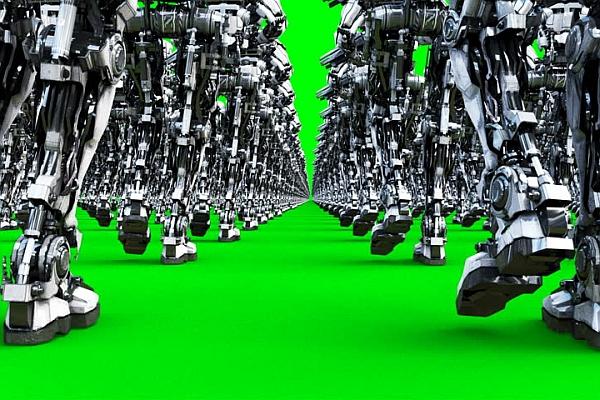Published on the 14/02/2018 | Written by Newsdesk

No, the robots (probably) aren’t going to steal our jobs…
Global research from consulting outfit PwC has shown that New Zealand is well positioned to manage three coming waves of automation between now and the mid-2030s. The company’s report, provocatively titled “Will robots really steal our jobs?” (no they won’t, but they might make life better) found New Zealand has just the sixth-lowest share of jobs that are at high risk of automation.
‘Risk of automation’ is an interesting choice of words; typically, when things are automated, they get done better, less expensively and faster, benefiting society in general, albeit at the possible cost of those who once performed those tasks or jobs.
In any event, PwC said in a statement that on average across 29 countries it examined as part of its report, the share of jobs at potential high risk of automation is around 3 percent by the early 2020s. This rises to almost 20 percent by the late 2020s, and 30 percent by the mid-2030s.
While this is global research, said PwC ‘it’s good to see New Zealand will fare better, thanks to the country’s higher concentration of jobs in industries with relatively low potential automation rates, rising to only 24 percent by the mid-2030s’.
“The data suggests New Zealand has the opportunity to continue creating jobs for people as the world navigates through the coming waves of automation. We have a workforce that’s built on roles that are less automatable on average than many countries around the world,” said PwC New Zealand Innovation Partner Andy Symons.
“That doesn’t mean we can be complacent though. Both businesses and government should be developing strategies around retraining options for workers and building an education system that allows us to replace jobs that are lost through automation.”
Between now and the mid-2030s, PwC said it expects three waves of automation to reshape the global economy.
- The algorithm wave, which is already underway and involves automating structured data analysis and tasks, such as credit scoring. This wave will come to maturity by the early 2020s.
- The augmentation wave is also underway and will mature later in the 2020s. The augmentation wave is focused on automating repeatable tasks, as well as the use of aerial drones, robots in warehouses and semi-autonomous vehicles.
- In the third autonomy wave, which could come to maturity by the mid-2030s, AI will be able to analyse data, make decisions and act with little or no human input. Fully autonomous driverless vehicles could roll out at scale in this phase, for example.
New Zealand is part of a small group of countries, along with the Nordic countries and Greece, where the workforce is concentrated in industries with relatively lower potential automation rates, and the roles workers hold are also on average less automatable.
“The report suggests we may experience a reduced impact (relative to other countries,” said Symons. “We’re in good shape because of our economy’s focus on services, especially areas like tourism, which can’t be easily automated. [However] we still have to be looking at how we train our young people and reskill workers so they are ready to move into new roles that technology like AI will create.”
Still worried about automation and job losses? Consider the fact that the past 30 years has seen dramatic advances in technology, machinery and automation, yet New Zealand, like many developed nations, has skills shortages in multiple industries and an unemployment rate of just 4.5 percent. Also, read Henry Hazlitt’s rather brilliant ‘The Curse of Machinery’.
Download PwC’s report.



























